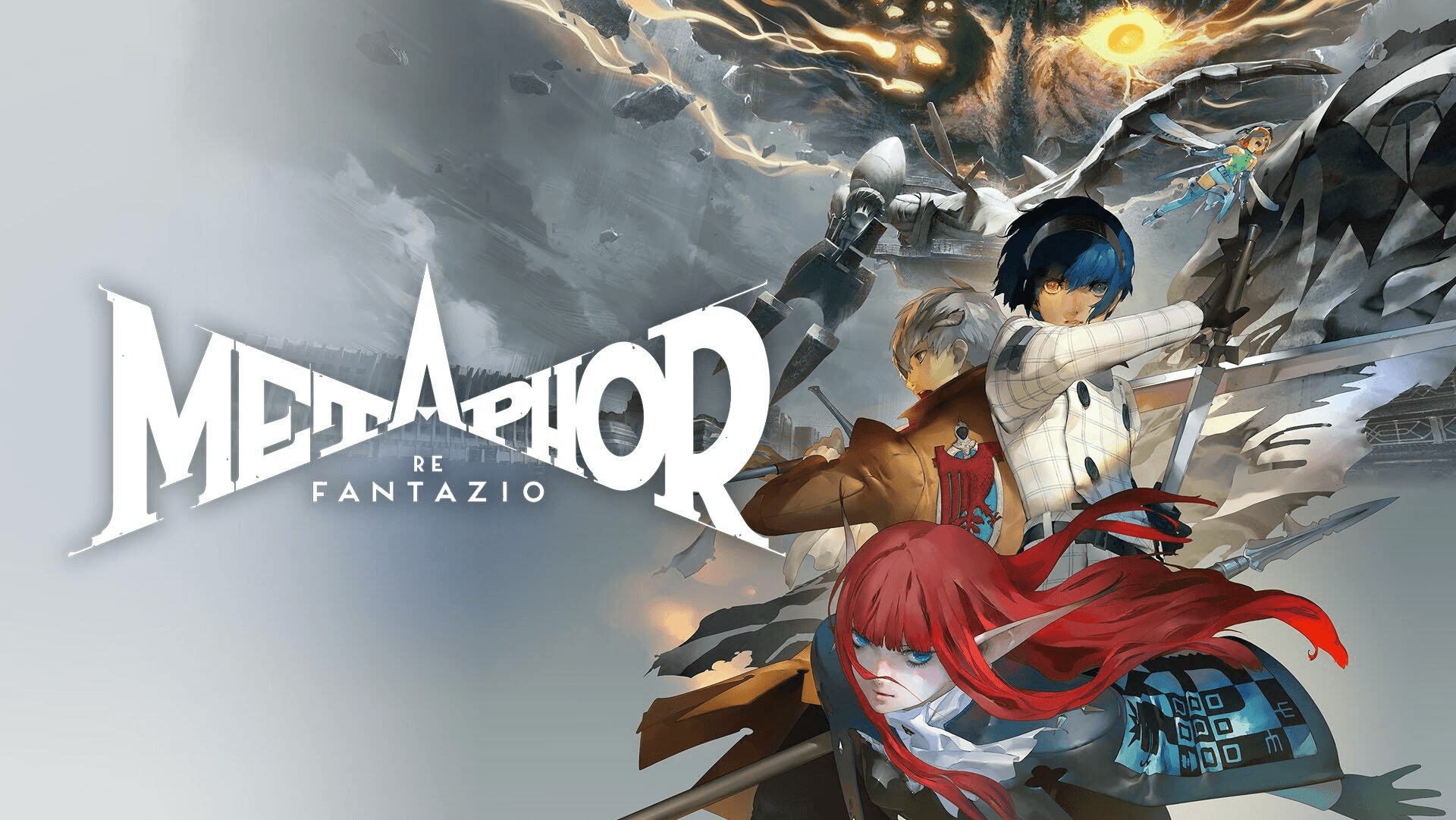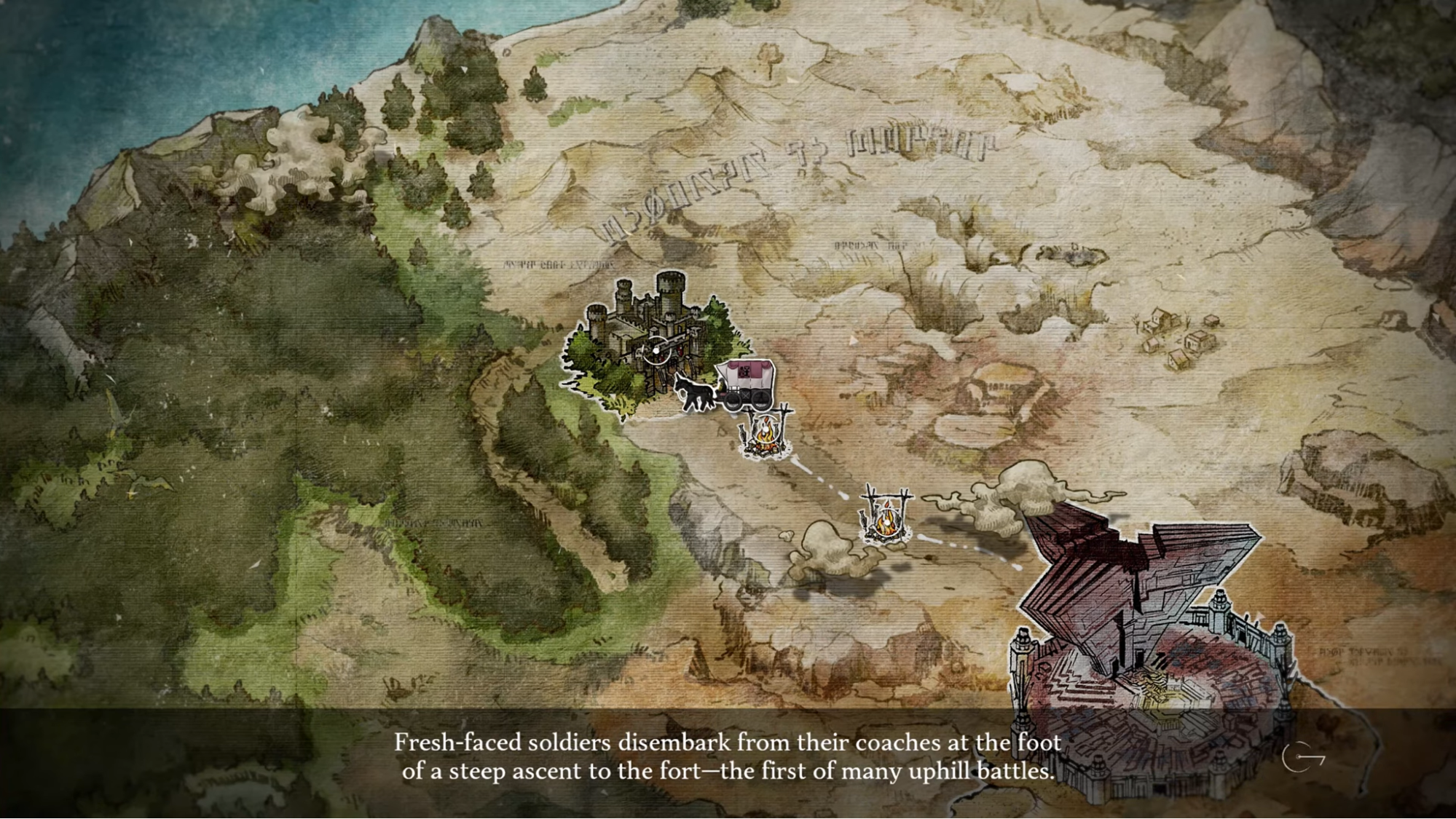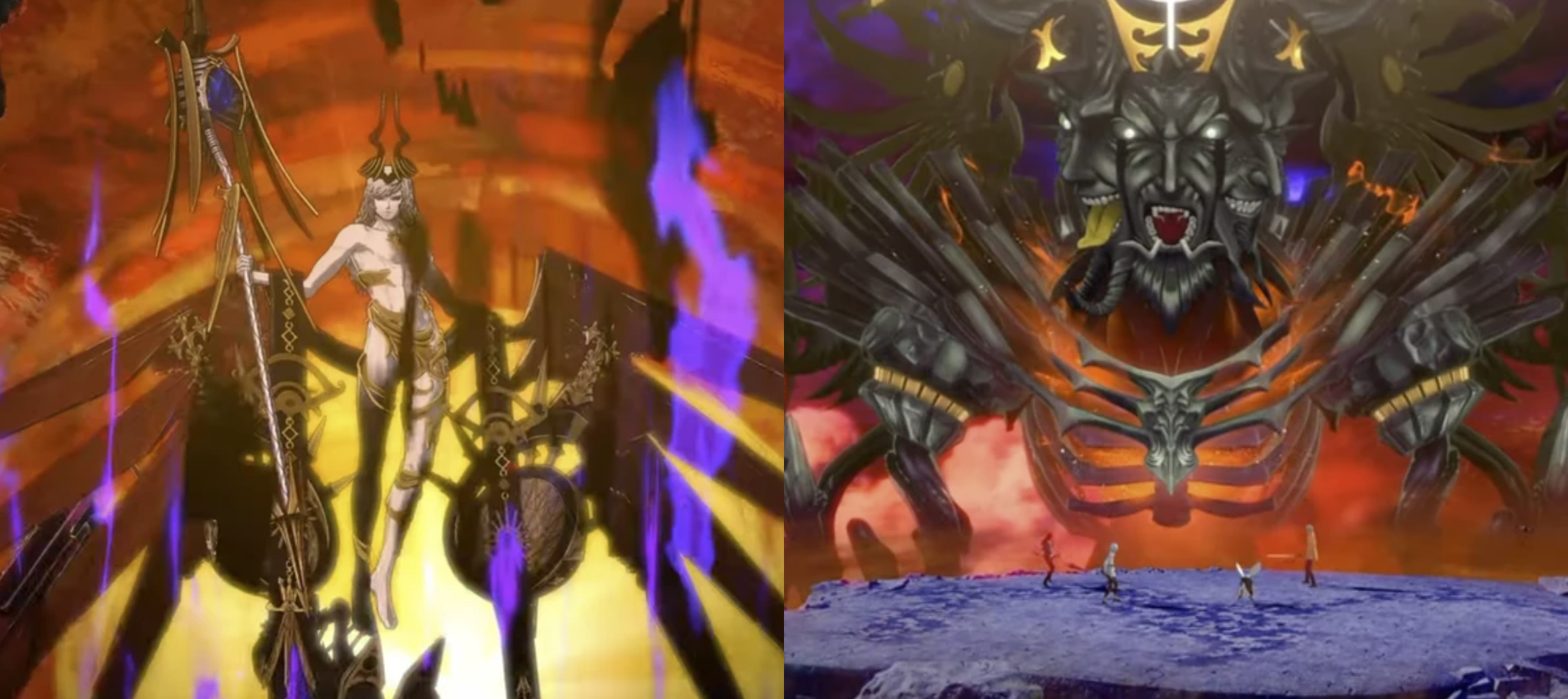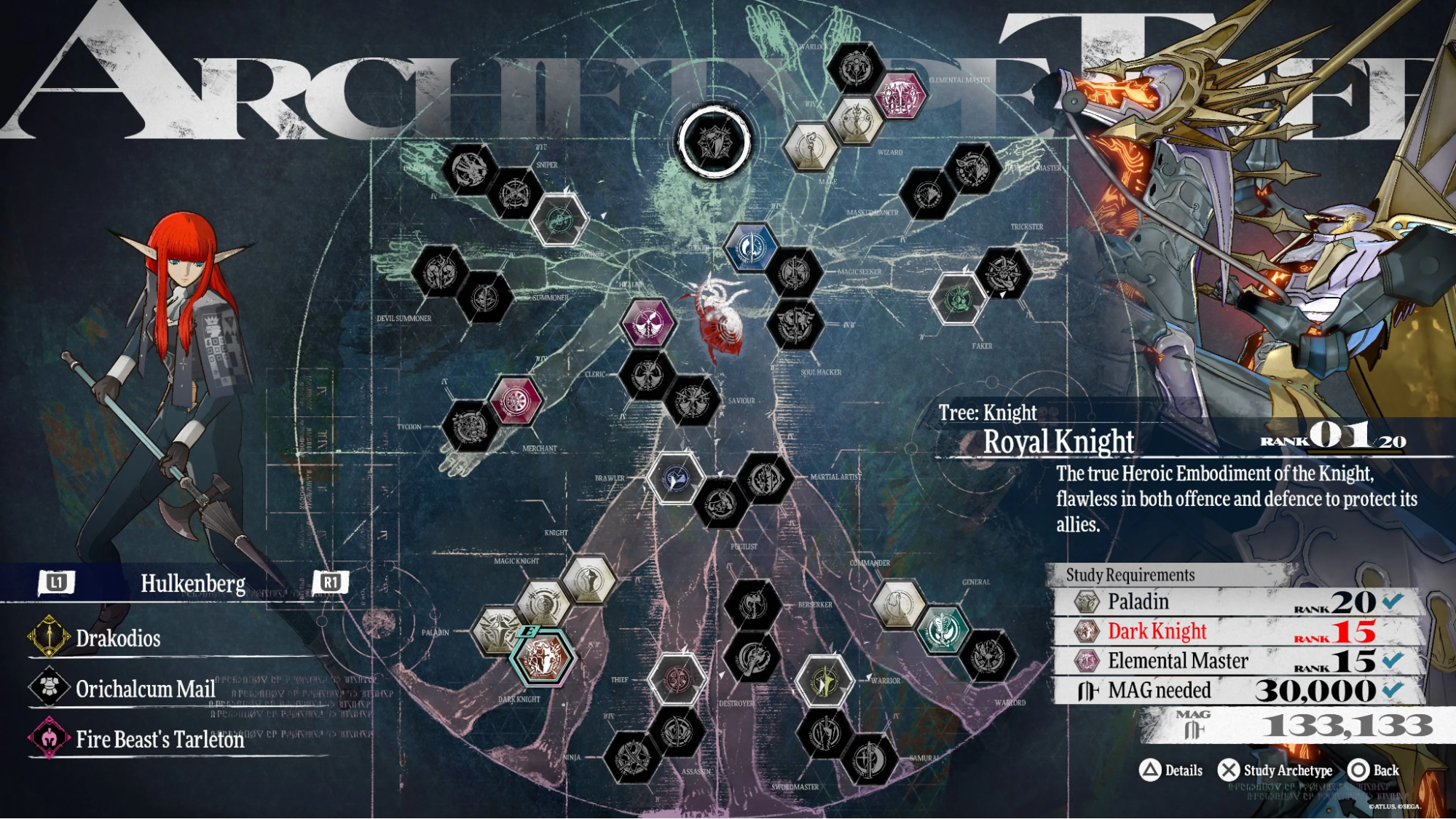Metaphor: ReViewtasio
Is Fantasy Dead?

Image Source: ATLUS
I just beat Metaphor: ReFantazio this morning as of writing, and I have so many thoughts. And then I had one more thought: I could compile all these separate thoughts into a singular article relaying my experience with the game. So here I am.
This isn’t so much a “game review” as it is my experience with the game and its personal highlights and lowlights. Some info: I got the game digitally the week it came out, and I didn’t beat it until now after playing it intermittently. I have a tendency to stretch out longer games into timeframes longer than should be warranted. I ended with a total time of 108 hours, but I’m convinced that a lot of that was idling on my phone, or trying to talk to my friends simultaneously, so it very well might be closer to 90-95, but don’t quote me on that. In this section, I’ll talk about a few things I liked spoiler-free, only including screenshots of things found in the Metaphor: ReFantazio Demo.
To start, in true ATLUS style, there’s a clear aesthetic that’s a sight to behold. The themes of storybook tales and fantasy shine clear throughout; the battle and menu UI ooze with old paint splotches and varied textures, there are knights and castles and fortresses, and the world map seems like it jumps straight out of the inside cover of a high fantasy novel. But my favorite aspect of this aesthetic has gotta be the narration. While you traverse the world in a gauntlet runner through the visually pleasing map, it’s accompanied by narration from the mysterious More. He waxes eloquent about each area you travel to, in ways appealing to each of the five senses. In my headcanon, each of his lines comes together to make its own book telling of the party’s adventures. There’s something so magical and whimsical about narration like this that has always tugged at my heartstrings. This happens in games like Pokémon Mystery Dungeon: Explorers of Time, when recounting your adventures to other Pokémon, and The Plucky Squire, where the game itself takes place in a children’s storybook.

The music!!! The wonderful Shōji Meguro returns from the Persona series to compose the music. As an aside, I’m partial to so many modern Persona tracks: as of recently, “Daredevil” from Persona 5 Strikers, “Beneath the Mask” from Persona 5, and “It’s Going Down Now” from Persona 3 Reload. There are a ton of good tracks in Metaphor as well, though, unlike Persona, I don’t have the inclination to listen to the soundtrack on its own. The gauntlet runner traveling music sets the adventuring mood, the city music is lofty and ambitious, and all the songs with chanting, including some of the main battle themes, were written in the language Esperanto!!!! And chanted by Buddhist monks!!! Incredibly cool and unique for some of the most replayed tracks in the game.
From this point forward, I will be discussing complete spoilers for Metaphor: ReFantazio. In lieu of some transitionary paragraphs, I’ll be separating it into a few sections: things I liked, things I didn’t like, and points where I personally thought there was missed potential.

Ed. Note: Past this point, there are spoilers for the events of Metaphor: ReFantazio
Things I enjoyed -
The designing staff has been a part of plenty of ATLUS games prior to this point, Soul Hackers, Catherine: Full Body (shoutout Catherina), and Persona of course. Character Designer Shigenori Soejima in particular returns from Persona games, and does a great job as always. I’m unsure as to what specifically he had a hand in, but the decision to make a playable character for each of the nine races is quite a symbolic stroke of genius, contributing to your campaign as a king who listens to his people. I’m sure different aspects of design occurred concurrently, but I appreciate how much the main party resembles their Archetype, both in design and in personality; the humble and steadfast Hulkenberg works well as a knight, and the rash and emotional Basilio swings hard as Berserker.
There were a lot of emotional moments that hit during the story for me as well. Grius, Rella, and Fidelio’s deaths all struck a chord with me, and I did shed a tear. Personally, my favorite follower arcs were Alonzo’s and Brigitta’s. Alonzo’s fake death and Brigitta’s blooming empathy were written very well, and match the Faker and the Merchant quite well. Although, I can’t say the ending of the game was emotional enough to get me to shed any tears. I am of the opinion that they dragged out the ending and the epilogue, and it could’ve been resolved in ten fewer hours.
I also love the monster designs, heralded by staff like Hitomi Yoshimura, who has worked on the Dark Souls franchise. A lot of cool birds and lions and wolves and whatnot, but I’m especially impressed by the “human designs”, reminiscent of demon and devil designs from Persona. There are things more freaky and weird, like the big egg and the baby head, and there are more traditional ones, like the dragon with a dude on top and the Kraken albeit with a human head. Most of these are inspired by the works of Hieronymus Bosch??? Which is super cool. But, my personal favorite by far is Louis’s final human form. I can appreciate his angelic form, the “Archdemon Louis Charadrius”, but man is the “Destroyer Charadrius” the coolest thing ever. Check out the pictures below.

There are a few other art choices I have to mention. I appreciate the presence of magla in the air in virtually every scene of the game, visualized by little floating, moving, intangible triangles, highlighting the pertinent anxiety and fear (the sources of magla) that riddle the kingdom of Euchronia. Of course, one of the main art draws for me are the stops you make along your journey to admire various wonders of nature, which are often magla-induced. Giant crystal statues, abandoned mines, and beautiful sunsets are the focus of these stops, colored by some commentary and theorycrafting by the party as to their origins, and drawn by Neuras to hang in the Hushed Honeybee later. They didn’t need to add these into the game, which is why I appreciate them all the more. It’s a little extra bit of magic that makes you wonder why each of these places doesn’t have entire pieces of media based around them.
I liked parts of the ending narrative and how it ties into the storybook concept. There’s a brief transcendence into “reality”, perpetrated by More, the author of the book about “reality” and also the soul of the king who is also our father. I did pog and point at the screen when I saw Shibuya Crossing, and I thought that it was cool that it was a “false reality” made to test us. Also one of the true purposes of the royal magic being for our guidance from a world beyond theirs (ours) is meta, but I can appreciate a full circle meta throughline, and I do remember inputting my real first name at the beginning of the name for this moment, very cool. “I know our story is ultimately fiction, but I hope this journey gives you strength in your reality”
I also appreciated the fact that relative to the other Persona games I’ve played, Metaphor gives you ample time to max out all of your follower ranks and complete all quests. I spent the last few days of my in-game time fighting at the colosseum and increasing my max mp by doing laundry. Very, very grateful for the plentiful time, and I hope that they implement this in future games.
Finally, I’m glad that romance is never a major game mechanic, especially among the main party members. In the very perilous fantasy setting, I think it’d feel out of place, having to find time for dates and such when you have real people’s lives to save. I would also like to point out the irony of this game, which has the oldest cast but lacks a romance mechanic.
Things I didn’t like about it -
The menu UI is aesthetic and lovely, as noted by the earlier picture; we can all agree on this. But in all my 108 hours of playing, I always confused where things were, especially between Equipment and Party. It’s not really intuitive where to change Archetypes conceptually, but I always ended up going straight into the full Archetype Tree to change them, since it told me the most relevant information in the least amount of screens. I also think I used the Party screen maybe once; I’d just change their formation in battle. Though it’s quite a lot of information to fit into menus, so I’m not sure where I’d place everything either.
Also, I like reading extra information when it's available, and not too cumbersome to get through, so I was a fan of the memorandum at first. Even though I ended up reading about every entry, it’s partitioned out so dogwaterly. There were five different categories, but I felt like they were so insanely out of order sometimes; they could’ve been condensed or fleshed out, some things didn’t need an entry, some things never got an entry, etc, etc. If they put me in charge I would’ve redone the whole thing. And it’s crazy that it was the least aesthetically exciting thing they could’ve done. To preserve the sanctity of the information, sure, but it wasn’t even flashy. Oh well, this is a very small personal gripe anyhow.
This one is a personal preference, but I prefer class systems that are more closed-ended with linear or a few branched evolutions, like something from Pokémon or D&D (e.g. Bard Colleges or Paladin Oaths). The idea that anyone can become any class is a nice sentiment, but when each party member has stat distributions that work better for certain classes, and the Royal Archetypes require max ranks from specific classes, it makes you wonder whether you wasted time training them up in any of the other classes. I would’ve liked to have gotten a hint as to which classes to train everyone up in, but the guessing game is part of the gameplay I suppose, and a lot of people like the free choice. Though, by the end of the game, you should be able to find enough experience to fully max out each character, with some EXP grinding.

Yet another small personal gripe, but I don’t think a silent protagonist works well for this long of a game. I wish Will was more vocal and aggressive, especially in important parts, when it’d be valuable to reassure a party member or denounce an evil person. I understand that it’s important to feel immersed and not have choices made for you, but as a person, I’d feel better if my guy yelled at who he needed to and comforted everyone in times of need.
Missed potential -
The game mentions the “Mage Academy” throughout the story as a grand campus that used to be the country’s premier magic school and magic research facility, but was shut down after they were found to be studying something “dangerous”. We later find out that the Sanctist Church shut them down, after taking advantage of the king’s vulnerable state of mind following the passing of his son (you, the protagonist). Magic can be used by anyone without the aid of an igniter, but the Church desired to monopolize the igniter industry, so it used the Academy as a means of furthering its goals. There was lore involving the skirmish that took place to shut down the academy, and there’s, of course, the fight you have with Rella in front of the Academy, who uses the same dragon that was conspired to be the reason for the dispute. But a part of me wishes that the Academy was a dungeon to explore, full of magical items. With Junah as the new headmistress, there’s a chance that any future entries in this “series” could take place here, a novel, a sequel game, or perhaps even a prequel game. I’d like to think it’d be something akin to Harry Potter or Fire Emblem: Three Houses, following students in a magical and mystical school.
Hulkenberg mentions a few times that she is a member of a prominent family, the Hulkenberg family, that resides in the Principality of Montario. I thought that once we reached Altabury, we’d interact at some point with her family. Like her family members would be side characters like Bardon and Edeni were, or the main mission of the area involved sneaking through the Hulkenberg Castle. Why even mention it if she barely talks about it during our whole stay in Altabury?? Maybe I’m too used to writing that fleshes out mentioned details like these.
One last point about Grius. We love Grius, of course, and his death was shocking and caused a number of plot progressions: getting close to Maria and Fabienne, learning about the royal magic, despising Louis even more, and adding Hulkenberg to the party. I liked visiting Maria, who is at her father’s grave at the end of the story, but I thought they’d acknowledge at some point that he was the rhoag who rounded out each of the nine races to be in the party of the eventual king, the protagonist. Or that he’d make a Star Wars-esque force ghost reappearance, or that we’d see his face at least one other time.
I did enjoy the game overall!! I loved the aesthetic, and I always appreciate good character arcs and monster designs. However, it didn’t have the qualities that made it gripping the way all the Persona games had, for whatever reason. It was a little bogged down by the lame menu UI and the missed opportunities. If I had to attach a number to it, I’d give it a 6.5/10, but I’d refer to this article for my nuanced thoughts.
Use of the word “Persona” count: 10